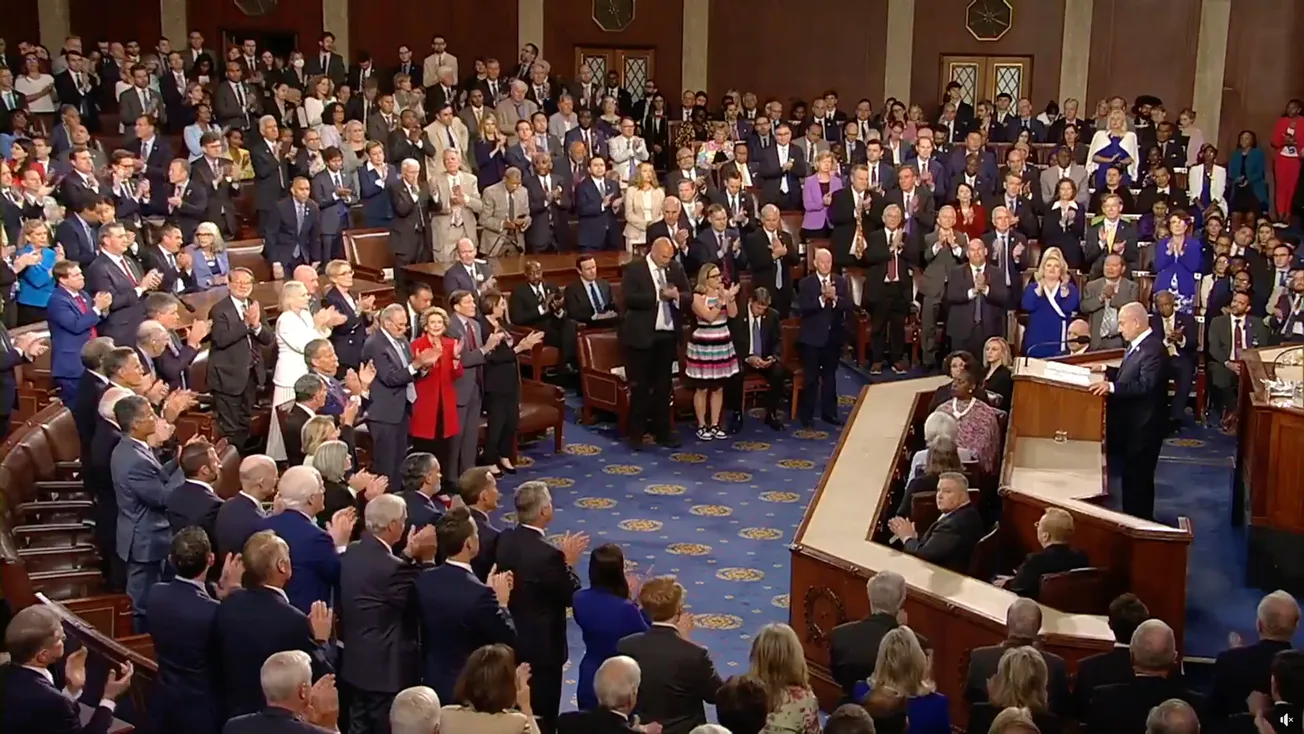While it is shocking that Israel would have assassinated the key figure within Hamas with whom they were supposedly negotiating for a peace, it should not be a surprise. Nine days ago, the U.S. Congress stood and cheered, over and over again, for Bibi Netanyahu’s messianic call for a full-scale war against Iran—beyond any “limited” measures in Gaza, Lebanon, Yemen etc. Whatever very limited restrictions Netanyahu may have calculated that he had to steer around in the past were now blown to smithereens.
The massive opposition within Israel to Netanyahu, and to such a dangerous and self-destructive course for their country, has been betrayed. Jewish protesters are being routinely arrested, some preemptively, and far-right settlers are seizing security locations while police stand by.
Then, yesterday, a pathetic U.S. President reported that, after suggesting to Netanyahu that the assassination of Ismail Haniyeh might not have been helpful to getting Hamas to agree to a ceasefire, Biden delivered his “stern” message—that when Iran delivers whatever response, the U.S. will unreservedly support Israel militarily in the next round. There’s not even a memory of when the U.S. contemplated the possibility of laying down the law to Netanyahu, of refusing to arm Israel’s escalations.
It certainly is more than enough to cause despair and hopelessness, but also more than enough to pay close attention to the way the Schiller Institute’s Helga Zepp-LaRouche honed in today on the missing ingredient. At the deliberations of the International Peace Coalition, its 61st consecutive weekly meeting, she intervened:
“I’m fully aware that the proposal that we have made for an Oasis Plan, given the present danger of a regional war, is not looking very likely. But I think that, still, the idea of having an economic development plan which would really be beneficial for all the countries of the entire region—really the region from India to the Mediterranean, from the Caucasus to the Gulf—this is really one large geostrategic area which is sort of the hub between Asia, Africa, and Europe. In ancient times, with the ancient Silk Road, this was a flourishing area of the world, being the hub of exchange of goods, of technologies, of culture, the beautiful cities of 2,000 years ago, everything from Samarkand, to Damascus, to other places, I think that looking back in history sometimes reminds you that there were better times, and that one can, through joint efforts, create a better future. And provided that we will be able not to have this crisis explode into a regional or even global war, I think the hour will come, because the idea to have an Oasis Plan on the table—we continue to organize for it, and I would encourage everybody on this call to help us to do that: The idea would be to have several more seminars in different capitals of the world or other cities, and then eventually engage some of the governments of the region. Because to go for economic development is the way to peace, so I think we should not leave that out of the perspective....
“I’m totally convinced that mankind is capable of reason! We are the intelligent species, we have produced an unbelievable wealth of discoveries. We have brought humanity from the very low level of population density of maybe 1 million people on the planet, and now we are 8 billion. If you think that each of these 8 billion, if developed properly, could be a genius like Beethoven, like Einstein, like Confucius, like so many other great minds. I believe in the power of the creativity of the human species, that we are on the verge of either destroying ourselves or to create an order which allows for every single country on the planet to survive, if we agree on the concept of sovereignty and equality of all of these countries.
“So, while it looks very desperate right now, I think it’s very important to keep up this vision of where we have to go to solve these problems.…”
As it is said: “Where there is no vision, the people perish.”
Seize the vision for LaRouche’s Oasis Plan, here, and the July 31 webcast “The Strategic Imperative for a Classical Renaissance,” here.







